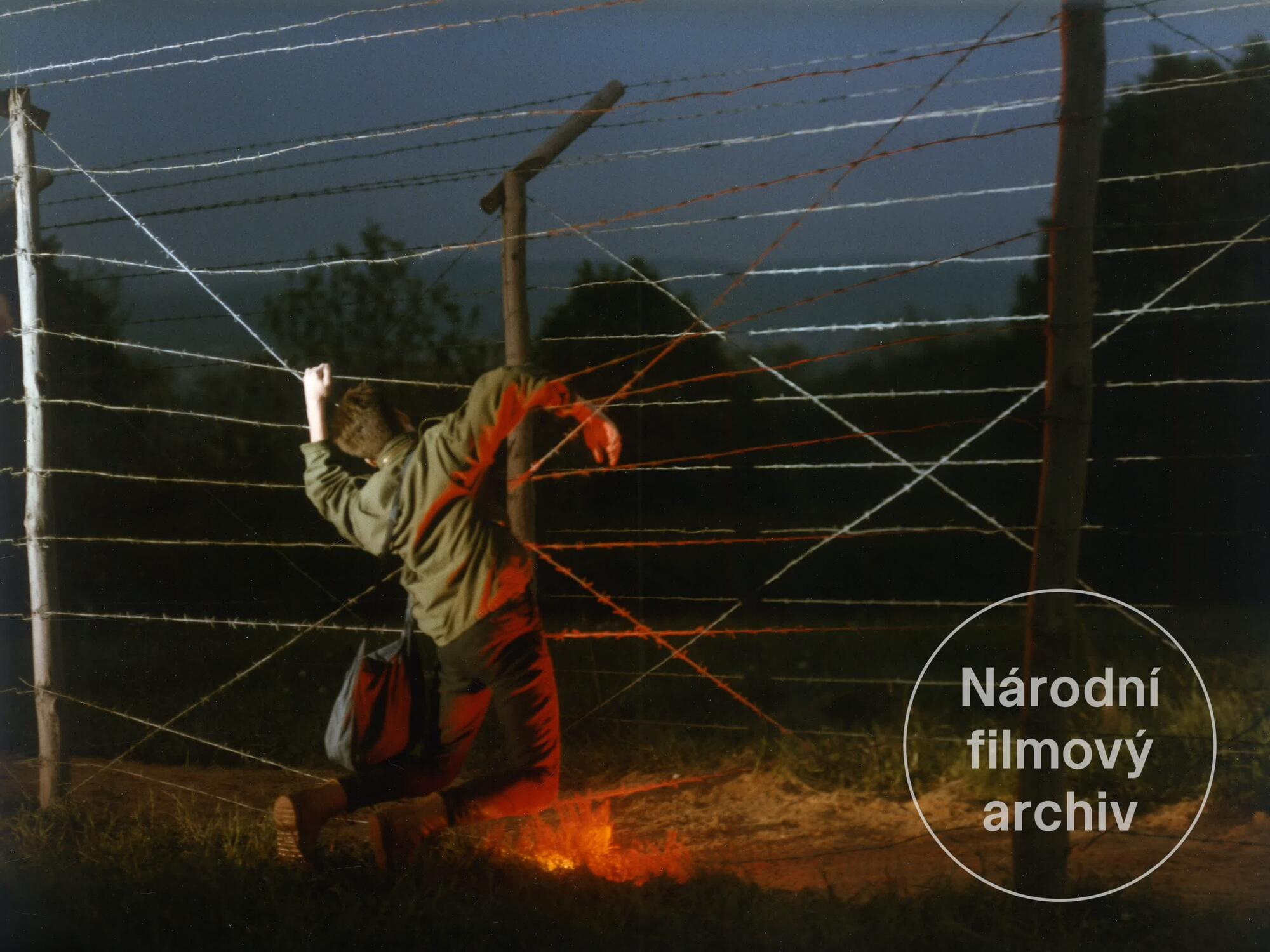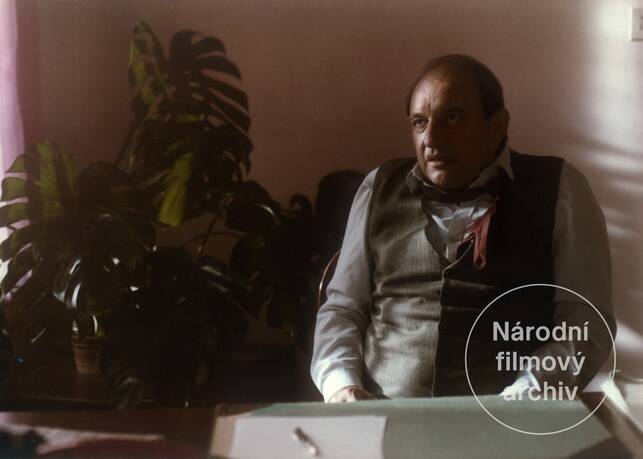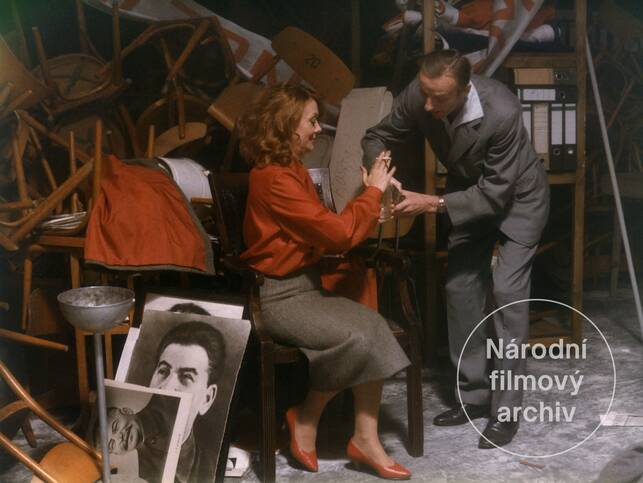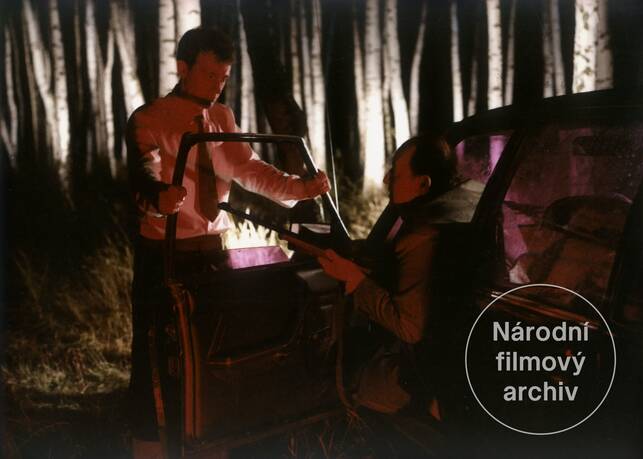Summary
With his “problematic” dramatic debut in 1984, Džusový roman (Juicy Novel), documentary filmmaker Fero Fenič took his place in the ranks of provocateurs that were criticising the status quo. The release of that drama about a young worker was delayed by four years. But Fenič was already stubbornly working towards getting his next feature film – namely this metaphorical drama about the devastating moral decay of a high-ranking functionary – into the cinemas. The protagonist of the motion picture’s expressively conceived narrative is Zdeněk Pešan (Polish actor Jan Tesarz), a man who is rightly afraid of losing his until now untouchable position. On the way to his aunt’s funeral, he finds himself in a company Tatra 613 vehicle accompanied by his secretary and mistress Olga (Ewa Žukowská) and the border guard Ondřej Zeman (Jiří Bábek), who has been laid off for shooting a trespasser on a border crossing and must now content himself with chauffeuring an official. As the large luxury car travels along the road back to Pešan’s native town, the functionary experiences the awakening of memories of his youthful nation-building years. His original ideals, however, have been devastated and his meeting with “the compatriots” of his town is far from being as ideal as he had anticipated. Moreover, he discovers that it is not his aunt, but his unwanted son, who has been killed. The driver Ondřej is mixed up in the murder.... Fenič’s unusual film – an apparent indictment of the decaying socialist regime – only made it through the approval process thanks to the atmosphere of coming political change (although Zvláštní bytosti [Strange Beings] came after Soviet “perestroika films”, such as Monanieba [Repentance, 1987], a comedy drama by director Tengiz Abuladze). As a breakthrough film, Zvláštní bytosti, which was not seen by the public until after the 1989 Velvet Revolution, does not only operate with transparent symbols and metaphors. It also uses socialist era icons, starting with the wildly popular singer Karel Gott, and ranging across the progressive singer-songwriter Jaromír Nohavica, the “Prague Spring” singer Marta Kubišová (film audiences got to hear her banned voice for the first time in 20 years) and the “Plastics” (or the Plastic People of the Universe, transformed into the band Midnight for the film). The viewer can also not fail to notice acclaimed Czech film director Jiří Menzel who plays “Alexander Slováček” (representing pre-Warsaw Pact invasion Czechoslovak prime minister Alexander Dubček) in this motion picture.
Read more





